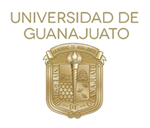 León, Gto., June 14, 2019.- With talks on scientific dissemination, presentation of research projects, conferences, in addition to the inauguration of the Data Laboratory of the Department of Physics of the University of Guanajuato (UG) Campus León, the event entitled "Mexican Cosmology Particles and Strings Schools" (MexiCOPAS) was held.
León, Gto., June 14, 2019.- With talks on scientific dissemination, presentation of research projects, conferences, in addition to the inauguration of the Data Laboratory of the Department of Physics of the University of Guanajuato (UG) Campus León, the event entitled "Mexican Cosmology Particles and Strings Schools" (MexiCOPAS) was held.
The event, which brought together undergraduate and graduate students, as well as researchers and academics from across the country, also considered specialized courses to train high-level human resources in the areas of cosmology, elementary particles and theory of Strings.
MexiCOPAS unified activities with schools such as the Mexican AstroParticle School (MAPS) in its second edition, the sixth of the Mexican School on Strings and Supersymmetry (MSSS) and the program of the third Mexican AstroCosmo-Statistics- Schools (MACSS) in training the future physicists and specialists who share an interest in the study of the origin and evolution of the universe, elementary particles, string theory, and other current topics in the field of physics.
In this sense, Dr. Gustavo Niz Quevedo, attached to the Department of Physics of the Division of Science and Engineering and member of the organizing committee of the event noted that 130 undergraduate and graduate students met to participate with the presentation of their research projects, approaching young people from other entities in the country to share experiences and knowledge, address current issues in the three areas of expertise, and learn more about data science.
The event was held by the Department of Cultural Studies of the UG and the Wigberto Jiménez State Central Library which is located in the Forum Cultural Guanajuato, where four scientific outreach talks were scheduled aimed at the general public in the participation of research professors from the León Campus of the UG with topics such as "The Theory of Strings and the Beginning of the Universe", "What is the Universe?", "Listening to the Universe" and "The mysteries of the Universe: What we know and what we don't know".
It should be noted that within the framework of the event the Data Laboratory of the Department of Physics was inaugurated, which adds efforts from students and academics to carry out research, contribute to the training of scientists with the ability to analyze data for the solve scientific problems, and which also aims to transcend its application in different sectors of industry, education and with social impact.
Dr. Miguel Sabido, Director of the Data Lab commented that the idea arose "from the needs that we have generated from the scientific research of the department, the main objective then is to solve the scientific problems that we have, train people with this extra skill and at some point in the development of the lab start to give this service to the whole community."
He added that the virtual laboratory will allow to expand the network of collaborations focus efforts on priority areas of research such as cosmology, gravitation, string theory, particle physics, astro particles, soft matter, statistical physics , chemical engineering, biomedical sciences, biophysics, pattern recognition and optimization.
In addition to this, research will be carried out to solve problems in the financial sector, (bio)economy, medicine, urban mobility and transit, energy systems, social networks, technology, as well as generate bridges between the different areas of knowledge to solve similar problems.


